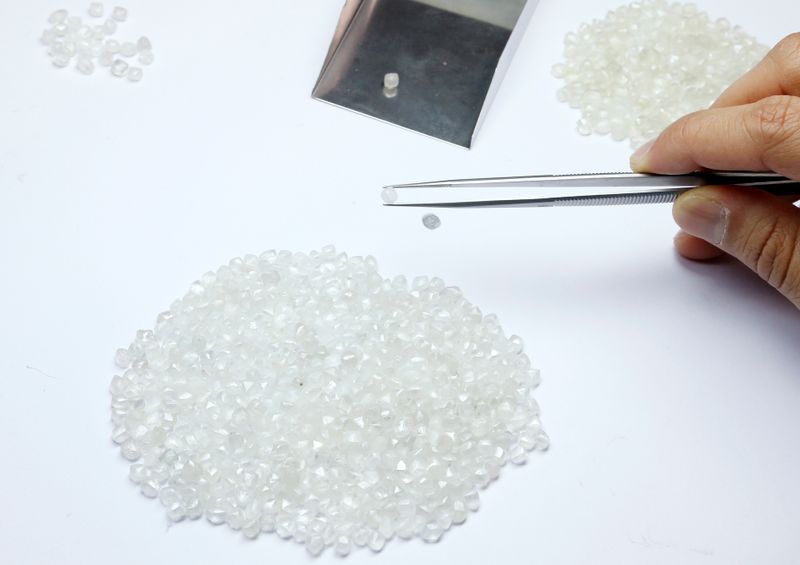By Marine Strauss
BRUSSELS (Reuters) - Antwerp is regaining its glitz as Belgium eases a two-month nationwide coronavirus lockdown that virtually halted business in the world's largest diamond trade centre.
The return of some of the brokers, cutters and couriers who normally throng the city's heavily-guarded diamond district, known as the Square (NYSE:SQ) Mile, comes as two of the world's biggest gold refiners resume operations after Switzerland relaxed its lockdown measures.
Belgium imposed the emergency restrictions on March 18 to stop the spread of the novel coronavirus, which has killed 8,016 people in the country and infected 50,509, bringing most businesses to a grinding halt.
Some 600 trading companies in the Square Mile shut their doors and 90% of the diamond cutting businesses closed, forcing most of the 500 cutters there to seek unemployment benefits, according to Melissa Smet, executive director of the Syndicate of the Belgian Diamond Industry.
With mines elsewhere in the world at a standstill and much of international transport grounded, diamond shipments to Antwerp dropped to as little as 26 shipments a day.
This compares to an average of 400-500 shipments per day of powder, rough and polished diamonds totalling some $250 million before the crisis hit, according to Karen Rentmeesters, spokesperson for the Antwerp World Diamond Center (AWDC).
Antwerp is also the home of Europe's second-largest port and AWDC data shows March imports of polished diamonds fell 73.5% from $1.5 billion to $400 million compared to March 2019. Exports of rough diamonds slumped 51.3% to $449 million from $922 million a year before.
COMPLEX CHALLENGE
Prices are also expected to fall. "We do see a significant drop in prices both on polished and rough side but it’s a complex situation," Rentmeesters said.
But that's not the only challenge facing the diamond trade as business started trickling back into Antwerp this week.
Preserving social distancing rules that require ensuring a space of at least 1.5 metres between workers has already proven a challenge in gem cutting workshops where cutting and polishing machines are fit in closely.
Cutters have direct contact with stones and pass on tools between one another while processing diamonds, Smet told Reuters.
While polishers in Antwerp are specialised in high-end stones, such as the world's second-biggest rough diamond owned by Louis Vuitton, the bulk of the work is done in India, where 90% of the world's diamonds are polished, AWDC said.
The Indian government has extended the lockdown until May 17 and the country - facing a glut of polished and rough diamonds - is looking to ban rough diamond imports for up to three months, Rentmeesters said.
AWDC said good news was coming, however, from Asia where the phenomenon of "revenge shopping" was bringing back customers into stores and results of the world's leading luxury group LVMH have been encouraging, even if some markets for diamond jewellery - including in the United States - are taking a hit.
For Antwerp's long-established diamond business that thrives on trade shows and much travelling, the lockdown has also forced a digital transformation: from hosting the Square Mile's first online trade show to improving traceability and transparency.

"We are looking for ways to embrace digital technology and that will definitely change the way business is done for good," Rentmeesters said.